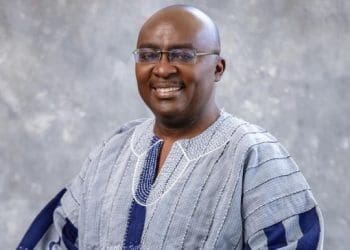Education Minister Haruna Iddrisu has admitted that the introduction of the double-track system under the government’s flagship Free Senior High School (SHS) programme has had negative consequences on the quality of education in the country.
Addressing the press, the Minister explained that while the policy significantly expanded access to secondary education, the implementation of the double-track system created challenges that affected teaching and learning outcomes.
“The double-track system has impacted negatively on the quality and outcomes of education under the Free SHS policy. Students have fewer contact hours and less study time, which affects their performance.
“Government’s commitment to ending the system can only be realised at three levels: expanding infrastructure, strengthening digital resources in schools, and allowing private SHSs to absorb qualified students to ease the pressure,” he said.
The double-track system was introduced in 2018 as a temporary measure to accommodate the sharp increase in SHS enrolment following the launch of the Free SHS policy.
The initiative divided students into green and gold tracks, with each group alternating in attendance to reduce congestion in classrooms.
However, critics of the system argued that it disrupted academic calendars, created pressure on teachers, and compromised the depth of teaching.
Parents and education experts also raised concerns about the adequacy of supervision during the off-track periods.

Iddrisu emphasised that government is committed to phasing out the double-track system by investing in more infrastructure, recruiting additional teachers, and improving resource allocation to schools.
The Minister’s remarks come amid ongoing debates about the sustainability of the Free SHS programme, with stakeholders calling for a review of its funding model and implementation strategies to balance access with quality.
To oversee the transition, the government has set up an 11-member committee to guide the reversal from double-track to single-track in SHSs and Senior High Technical Schools (SHTSs).
The committee, chaired by Prof. Peter Grant of the University of Cape Coast (UCC), has been tasked to review the 2024/2025 academic calendar and propose a roadmap for the phase-out.
Members of the 11-member committee include:
Prof. Godwin Awabil, University of Cape Coast (UCC)
Prof. Samuel A. Atintono, PRINCOF
Prof. Smile Gavua Dzisi (Mrs.), Deputy Director-General (Management Service), GES
Dr. Munawaru Issahaque, Deputy Director-General (Quality and Access), GES
D. W. Agbenyo, WAEC
Rosemond Wilson (PhD), WAEC
Mr. Augustus Agyemfra, CODE
Mr. David Odjidja, CHASS
Addo Nicholas Nii Kpakpoe, COHBS
Prince Charles Agyemang-Duah, Schools & Instructions Division, GES












